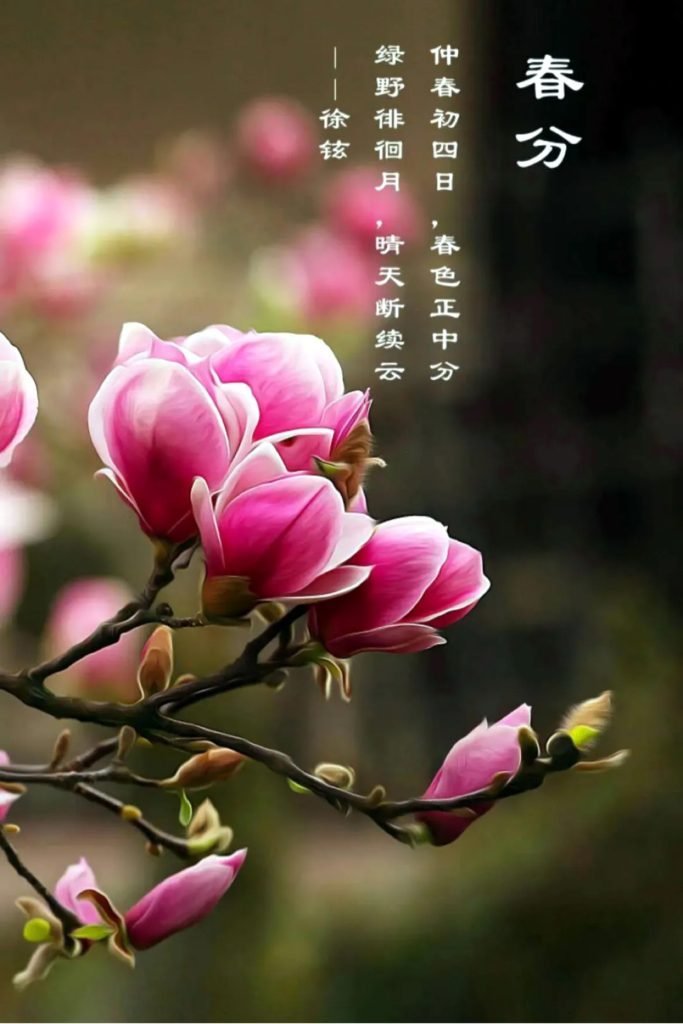
Today is the Vernal Equinox Day. It’s the day when the lengths of day and night are almost equal. From now until the Summer Solstice on June 21st, the daytime gradually lengthens, reaching its peak at nearly 14 hours and 30 minutes on the day of the Summer Solstice. After that, the daytime shortens gradually, and on the Autumnal Equinox Day (September 22nd), the lengths of day and night become equal again. By the way, the day with the shortest daytime is the Winter Solstice (December 21st), with approximately 9 hours and 30 minutes. While the Summer Solstice and Winter Solstice are not national holidays, the Vernal Equinox and Autumnal Equinox are. The reason Vernal Equinox Day and Autumnal Equinox Day became national holidays is related to the historical practice of imperial court rituals being conducted on these days. The “Spring Equinox Ceremony” is held on the Vernal Equinox, and the “Autumn Equinox Ceremony” is held on the Autumnal Equinox. Therefore, when the post-war constitution was established, Vernal Equinox Day was designated as a day to “respect nature and cherish living things,” while Autumnal Equinox Day was designated as a day to “honor ancestors and remember the deceased.” Thus, rituals have been carried out in Japan to pray for bountiful harvests in spring and express gratitude for the harvest in autumn, reflecting the cultural traditions nurtured in Japan.
今日は春分の日です。昼の長さと夜の長さがほぼ同じになる日です。これから夏至(6/21)までは昼の時間が段々長くなり、夏至の日にはほぼ14時間30分で最長になります。それからは昼の長さが段々短くなり、秋分の日(9/22)に再び昼の長さと夜の長さが等しくなります。ちなみに、昼の長さが一番短くなる日が冬至(12/21)でほぼ9時間30です。夏至や冬至は祝日ではありませんが、春分と秋分は祝日です。春分の日や秋分の日が国民の祝日になったのは、歴史的に春分の日や秋分の日に宮中祭祀が執り行われてきたことと関係があります。春分には「春季皇霊祭」、秋分には「秋季皇霊祭」という宮中の儀式が行われてきました。そのため、戦後の新憲法制定の際に、それを引き継ぐかたちで、春分の日は「自然をたたえ、生物をいつくしむ」日として、また秋分の日は「祖先をうやまい、亡くなった人々をしのぶ」日として制定されました。こうして季節の変わり目に、春は五穀豊穣を祈り、秋は収穫に感謝する行事が行われてきたのは、日本で育まれた風土と言えます。
